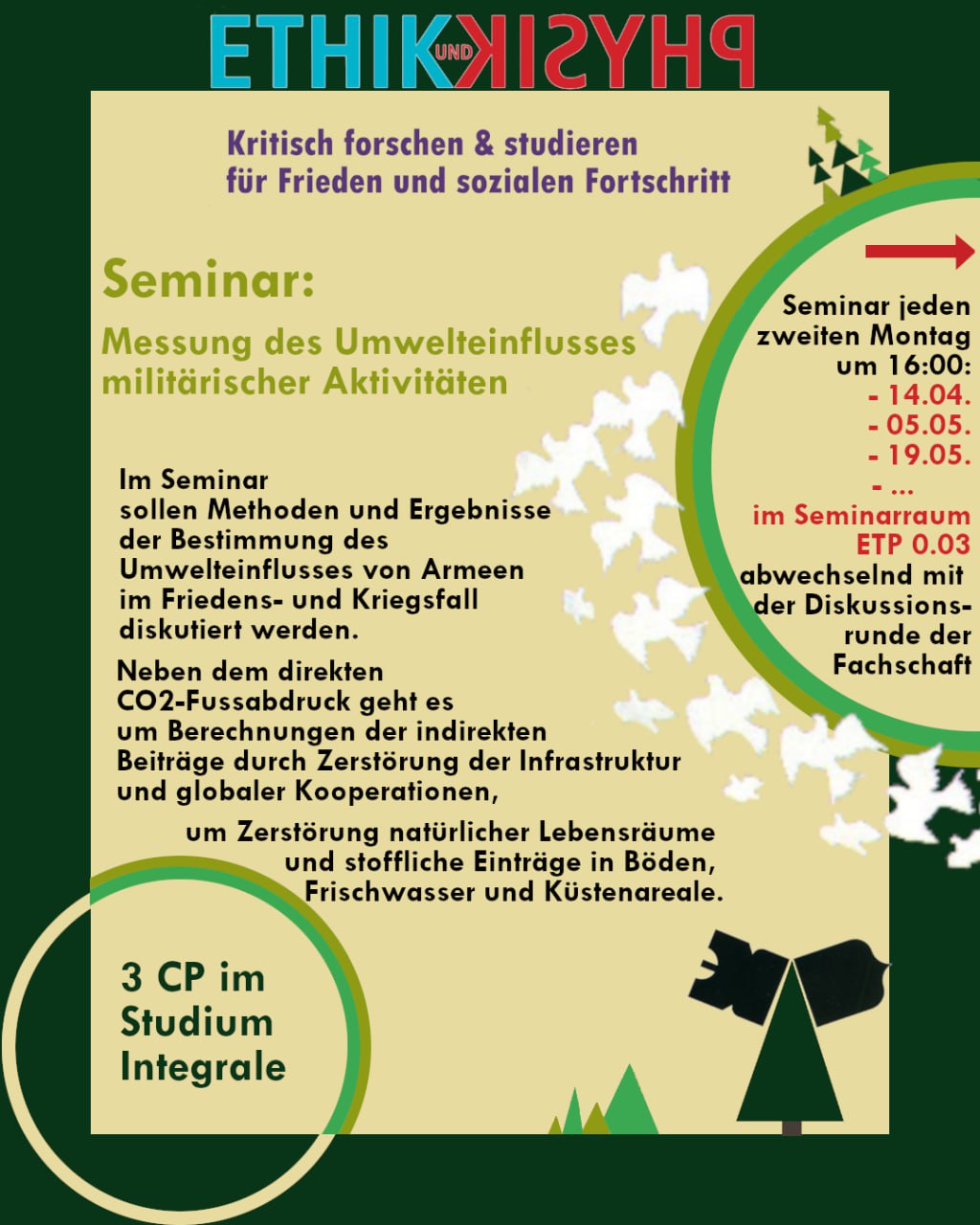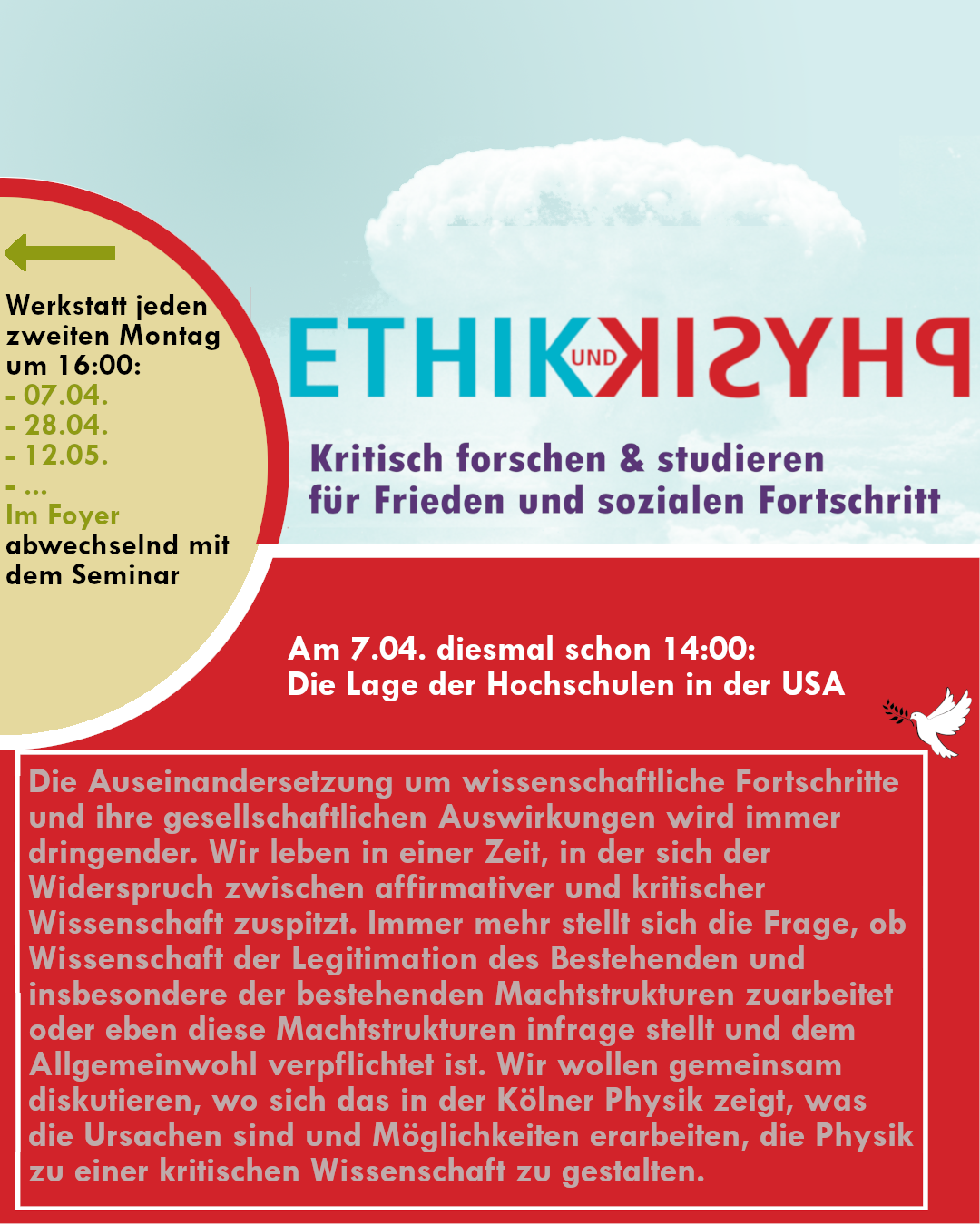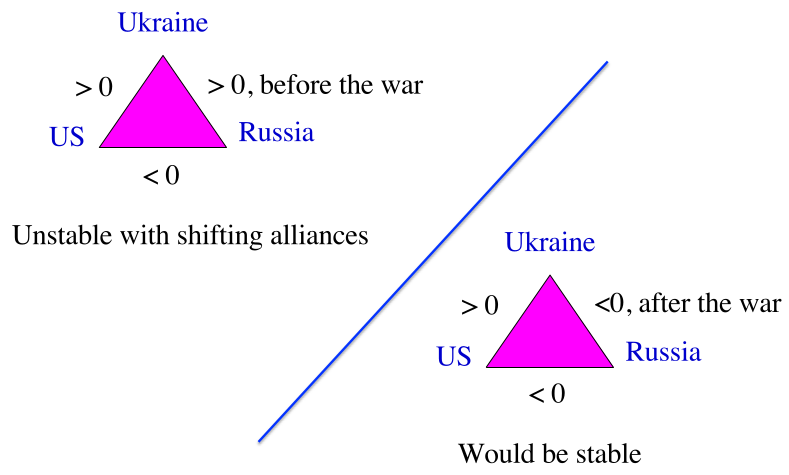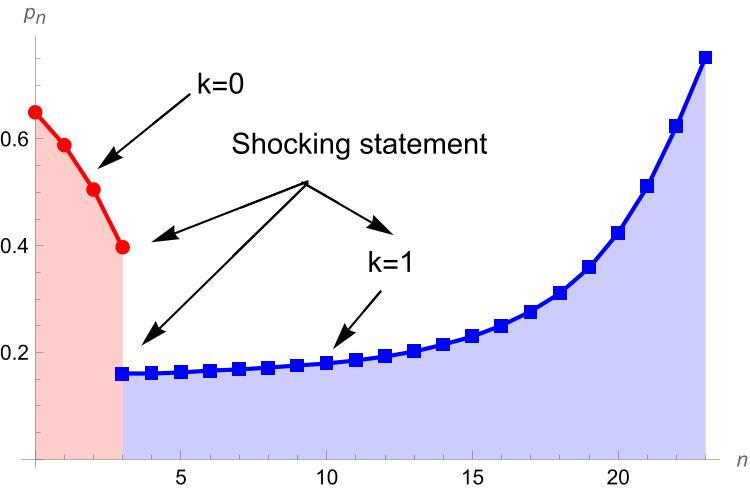Physik & Ethik: Nuklearer Winter

Viel Geld, Hype, Geopolitik und Postkolonialismus
(im Rahmen der KEW, mehr Infos in Kürze)

When:
Where: Seminar room (old) Theory, 16:00
For whom: Advanced Bachelor students & Master beginners
Three Fridays to get to know the specializations offered in the Cologne Master Program, to hear the stories of many master students, to get to know each other…:
In parallel:
Study Planning & Guidance for new students who need assistance with study planning or course-related and other questions, especially for those who couldn’t attend yet.


Jeden Montag um 16:00, Physik & Ethik – kritisch forschen und studieren für Frieden und sozialen Fortschritt!
Abwechselnd zwischen Seminar und von uns organisierte Gesprächsrunde,
ACHTUNG am nächsten Montag (7.4.25) ausnahmsweise schon um 14:00
Fokus des Seminars in 2025 ist die „Messung des Umwelteinflusses militärischer Aktivitäten“. Im Seminar sollen Methoden und Ergebnisse der Bestimmung des Umwelteinflusses von Armeen im Friedens- und Kriegsfall diskutiert werden. Neben dem direkten CO2-Fussabdruck geht es um Berechnungen der indirekten Beiträge durch Zerstörung der Infrastruktur und globaler Kooperationen, um Zerstörung natürlicher Lebensräume und stoffliche Einträge in Böden, Frischwasser und Küstenareale.
Die Auseinandersetzung um wissenschaftliche Fortschritte und ihre gesellschaftlichen Auswirkungen wird immer dringender. Wir leben in einer Zeit, in der sich der Widerspruch zwischen affirmativer und kritischer Wissenschaft zuspitzt. Immer mehr stellt sich die Frage, ob Wissenschaft der Legitimation des Bestehenden und insbesondere der bestehenden Machtstrukturen zuarbeitet oder eben diese Machtstrukturen infrage stellt und dem Allgemeinwohl verpflichtet ist. Wir wollen gemeinsam diskutieren, wo sich das in der Kölner Physik zeigt, was die Ursachen sind und Möglichkeiten erarbeiten, die Physik zu einer kritischen Wissenschaft zu gestalten.
 Mon, 28.4.,
Mon, 28.4.,
Seminar room 0.03 in the ETP
Serge Galam is one of the founders of sociophysics, which applies the methods of statistical physics to social contexts. We were able to get him to come to Cologne for the GPK and will hold a Journal Club with him on the paper published in 2023:
The dynamics of alliances: The case of Ukraine and Russia
In the paper, he models the alliances of states analogously to the Ising model of magnetism and analyzes the instabilities that can be identified. Building on this, the effect of supranational alliances such as the Warsaw Pact and NATO and possible geopolitical consequences are discussed.
After a short informal introduction by Serge Galam, we will discuss the paper together. Ideally, you should have a look at the paper beforehand, but if you prefer to do this together, you can also join us at 15:30.
Journal Club: What does Sociophysics tell us about the conflict in Ukraine?Weiterlesen »

Tuesday, 29th of April, 16.00
(16.00 Coffee & Cake in the foyer, 16.30 talk & discussion)
Lecture Hall III
After a brief journey through the history of sociophysics, and a clear clarification of what sociophysics aims to be — and what it is not — Serge Galam from CEVIPROF in Paris will illustrate its capability by presenting the foundational elements of the Galam Majority Model (GMM) of opinion dynamics. He will highlight the compelling mechanism of democratic minority spreading during open and free public debate. Drawing on the GMM, he will explain how he successfully predicted the unexpected victory of Donald Trump in the 2016 U.S. presidential election. He will also critically examine why my forecast for Trump’s victory in the 2020 election against Joe Biden fell short. Finally, he will conclude by presenting my insights into the robustness of the model, especially in light of the second Trump victory in the 2024 election.